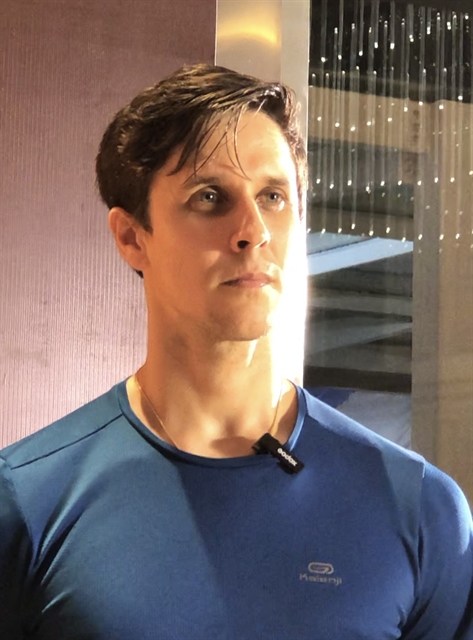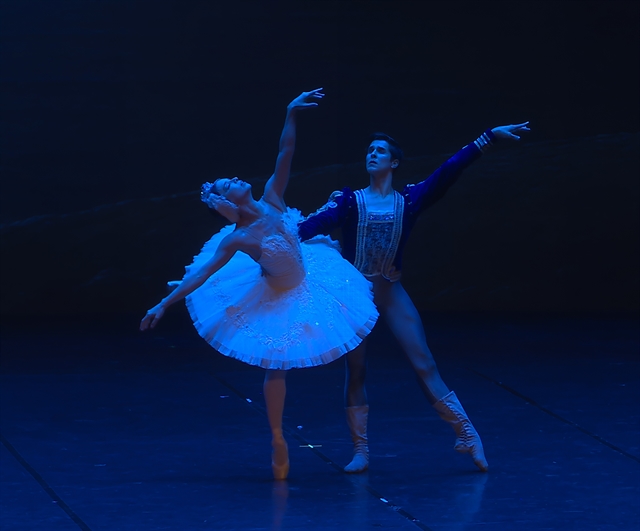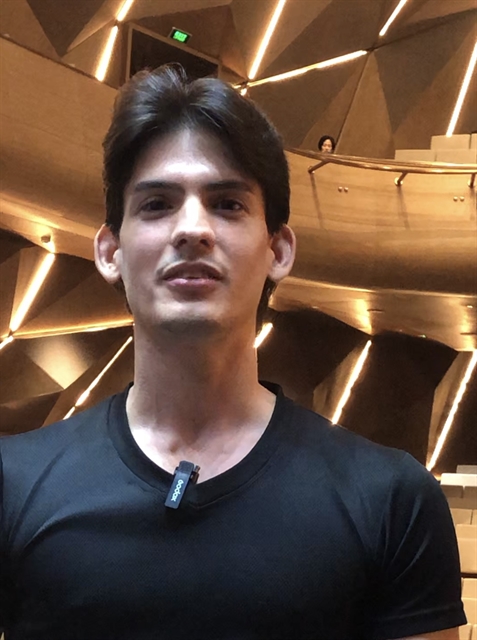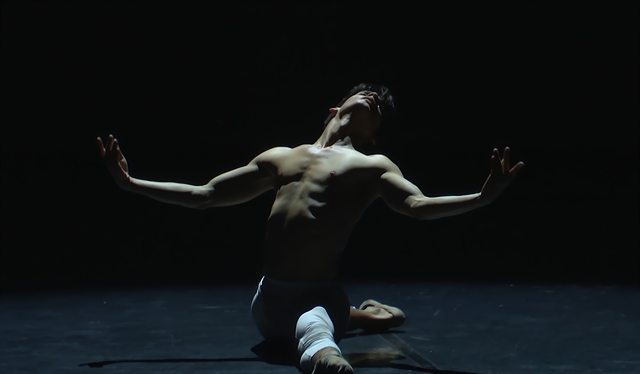 Sunday/Weekend
Sunday/Weekend

 |
| Dani Hernádez, NBC principal dancer and General Director of the National Ballet School in Cuba. VNS Photos Đoàn Tùng |
Enrolled to study at the National Ballet School of Cuba aged 13, Dani Hernádez is now the school's General Director. Việt Nam News asks him about training a new generation of dancers.
Việt Nam News: What do you love most about dance as a career, as a professional dancer?
Dani Hernádez: Well, as a career, ballet is something extraordinary. Dance itself is one of the manifestations that allows human beings to express from within all the feelings and sensations they may have throughout their lives. In fact, dance is considered the first form of human expression as it evolved through the ages.
And that's precisely what makes me happy. Ballet allows me to express all those feelings I have. It allows me to play characters I've never met, and through dance I can connect with those stories, with those great stages that humanity has had for so long.
There's nothing more gratifying for a dancer after a performance than the applause of an audience. And that's what fulfils us most, no matter where we're performing, knowing that the audience understood, connected and was part of what we're delivering. And that is despite all the physical effort, exhaustion, mental work and study.
So, is ballet your life?
Yes, ballet is my life. It's what makes me feel happy with every step I take. And it's what I'll take with me everywhere in the future.
 |
| LIFETIME'S WORK: Dani Hernádez performs 'Swan Lake' with Viengsay Valdés at Hà Nội Hồ Gươm Opera House. |
As a dancer, do you think you represent the best of Cuba?
Yes. Ballet itself is one of the main pillars of Cuban culture today. In fact, our small island State boasts one of the world's great ballet schools: the Cuban School of Ballet. Today, I am not only the principal dancer trained by this school, but I am also the General Director of the National Ballet School of Cuba.
In Havana, there are over 200 students in that school alone. Nationally, there are seven schools: six in the provinces and one in Havana.
Ballet is very demanding. What is your secret to becoming successful – as a dancer, teacher, and now director?
The secret lies in the student's perseverance. Just that: perseverance. Discipline, taking care of your body, knowing how to train each day, recovery times and consistent, daily work.
These were the lessons our teachers taught us; they are the lessons we uphold today and pass on to all new generations, both inside and outside of school. And this is what has made Cuban ballet recognised worldwide.
Cuba is a young ballet country compared to Europe or the US. What makes Cuban ballet special?
The Cuban Ballet School was the youngest to be established. First there was the Italian school, then the French, Russian, Danish, English and finally, the Cuban school. Since then, there have been no more officially recognised schools.
And that's what makes Cuban ballet great: having its own methodology, developed by our founders Fernando, Alicia and Alberto Alonso, passed down through generations. And now, as director, it's my turn to continue that legacy.
What’s your impression of Việt Nam? If you choreographed a piece about Việt Nam, what would it be about?
Well, this is my second time here. From the moment we arrived, we received very special recognition and attention from all quarters. The most impressive was the public.
When we first performed at this very theatre, the reception was like we were back on the big stages of Cuba, with the warmth of the audience, the interaction and the mutual understanding.
If I had to choreograph a ballet about Việt Nam, it would be about its people, its history, its perseverance in the face of adversity.
 |
| Yankiel Vásquez, NBC principal dancer. |
Yankiel Vasquez, principal dancer of Ballet Nacional de Cuba, tells Việt Nam News what it means to be a dancer.
Việt Nam News: What do you like most about ballet as a career?
Yankiel Vasquez: What I like most, and what we all like most, beyond travelling, is that we've been to several countries, and they're all different cultures. But the most important thing is that we make so many friends, and that's what we'll stay with for life.
You've travelled a lot, but can you name three places that impressed you the most?
Oh, I really like Spain. I really like Spain, followed by China and Việt Nam.
 |
| FAN FAVOURITE: Yankiel Vásquez performs 'The Dying Swan' in Hà Nội |
What do you think about the people here in Việt Nam?
The way you treat your people since we arrived has been impressive. The human quality, and the way they've treated us.
Do you think dancers like you represent the best of Cuba?
Cuban dancers are spread all over the world. And wherever there's a Cuban dancer, I think we'll be the best representative because we're always giving our best.
What is the biggest sacrifice you’ve made to become a professional dancer?
In my personal case, I left home at a young age. When you do that, you separate yourself from your family. It's very difficult, because you struggle from a young age. It's difficult, but at the same time, it makes us stronger.
That's one of the greatest sacrifices I think I was able to overcome. It was like a 3-4 hour drive. I'd leave on a Sunday, stay all week, and return on Friday.
What did your parents do?
Well, my dad had already passed away and he was a grocer, and my mom was a housewife.
Do you remember your first time going to Havana to study ballet? Did someone accompany you, and were you sad or excited?
I just went alone. The first few days were sad, because I couldn't go home. At least when I was in Pinar del Río, I could go weekly, so I'd be there for two days. But when I was in Havana, I went very rarely. Even when I joined the company, I couldn't spend the holidays with them anymore. It was a very radical change.
Would you like to come back to Việt Nam and perform again?
Oh, of course. It's been a very nice experience. And I've already said it: the treatment has been wonderful. I'm beyond grateful for that. VNS




